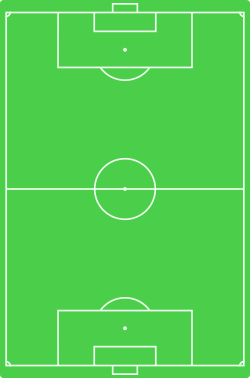
The Brazil national football team participated in the 1974 FIFA World Cup, and in doing so maintained their record of being the only team to enter every World Cup Finals.
Contents
- Qualifying
- The Cup
- First round
- Second round
- Third-place match
- Starting 11
- Goalscorers
- External links
Brazil finished in fourth place, failing to top their group in the second group phase.
